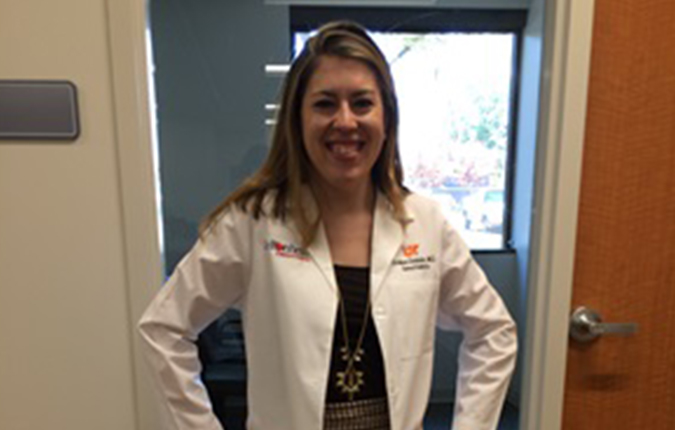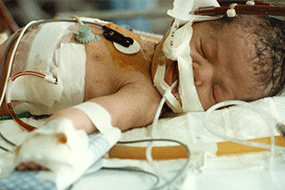Condition
Pediatric Diaphragmatic Hernia
What You Need to Know
A diaphragmatic hernia is a birth defect in which an opening is present in the diaphragm and causes some of the organs that are normally found in the abdomen to move up into the chest cavity through this abnormal opening.
Key Symptoms
The symptoms of a Bochdalek diaphragmatic hernia may include:
- Difficulty breathing
- Fast breathing
- Fast heart rate
- Other signs
Diagnosis
Your child's healthcare provider may perform the following:
- Physical examination
- Chest X-ray
- Blood tests
- Other diagnostic tests
Treatment
Treatment for a diaphragmatic hernia may include:
- Neonatal intensive care
- ECMO
- Surgery
Schedule an Appointment
Our pediatric specialists provide personalized care for your child’s physical, mental and emotional health needs. Meet our providers and schedule an appointment today.
Frequently Asked Questions
What is a diaphragmatic hernia?
What are the causes of diaphragmatic hernia in children?
Why is diaphragmatic hernia concerning in children?
What are the symptoms of a diaphragmatic hernia in children?
How is a diaphragmatic hernia is diagnosed in children?
How is a diaphragmatic hernia treated in children?
Can babies with a diaphragmatic hernia have problems in the future?
Departments that Treat Diaphragmatic Hernia

Rare Disease Institute - Genetics and Metabolism
Children's National Rare Disease Institute (CNRDI) is a first-of-its-kind center focused exclusively on advancing the care and treatment of children and adults with rare genetic diseases.

Help Kids and Make a Difference
Invest in future cures to help children have brighter futures.








